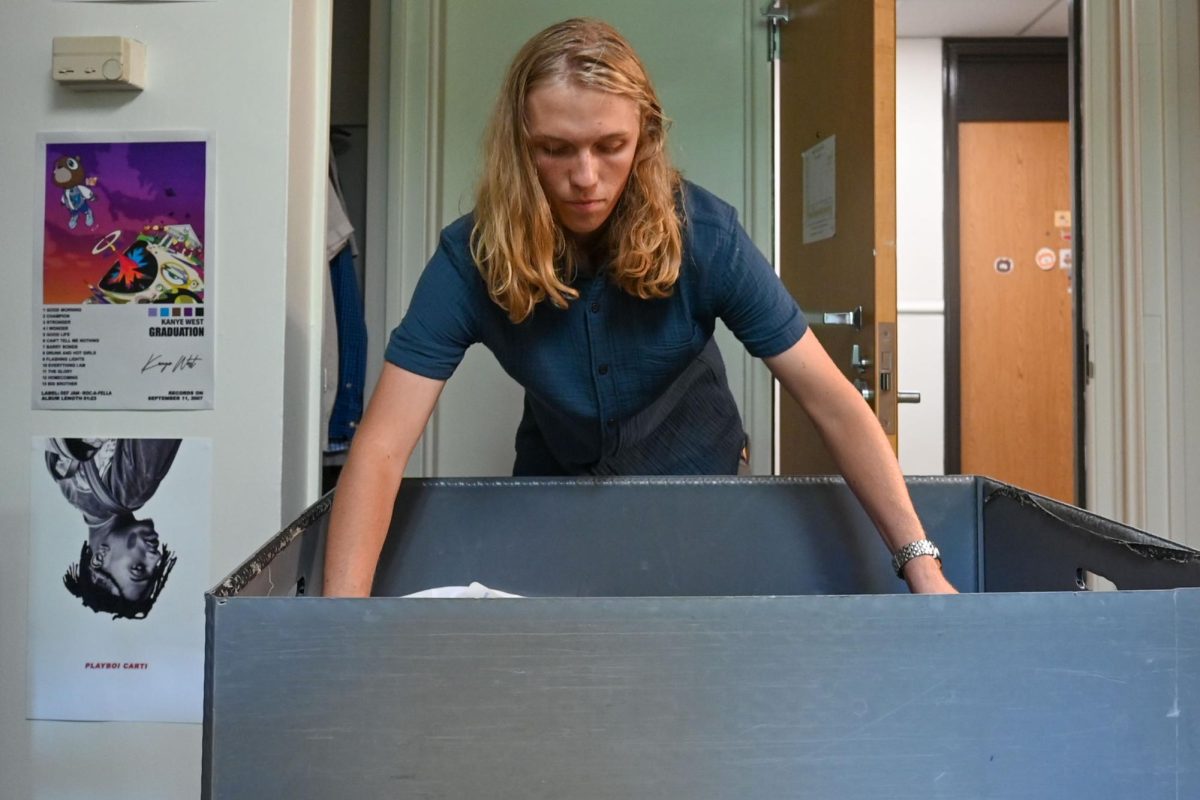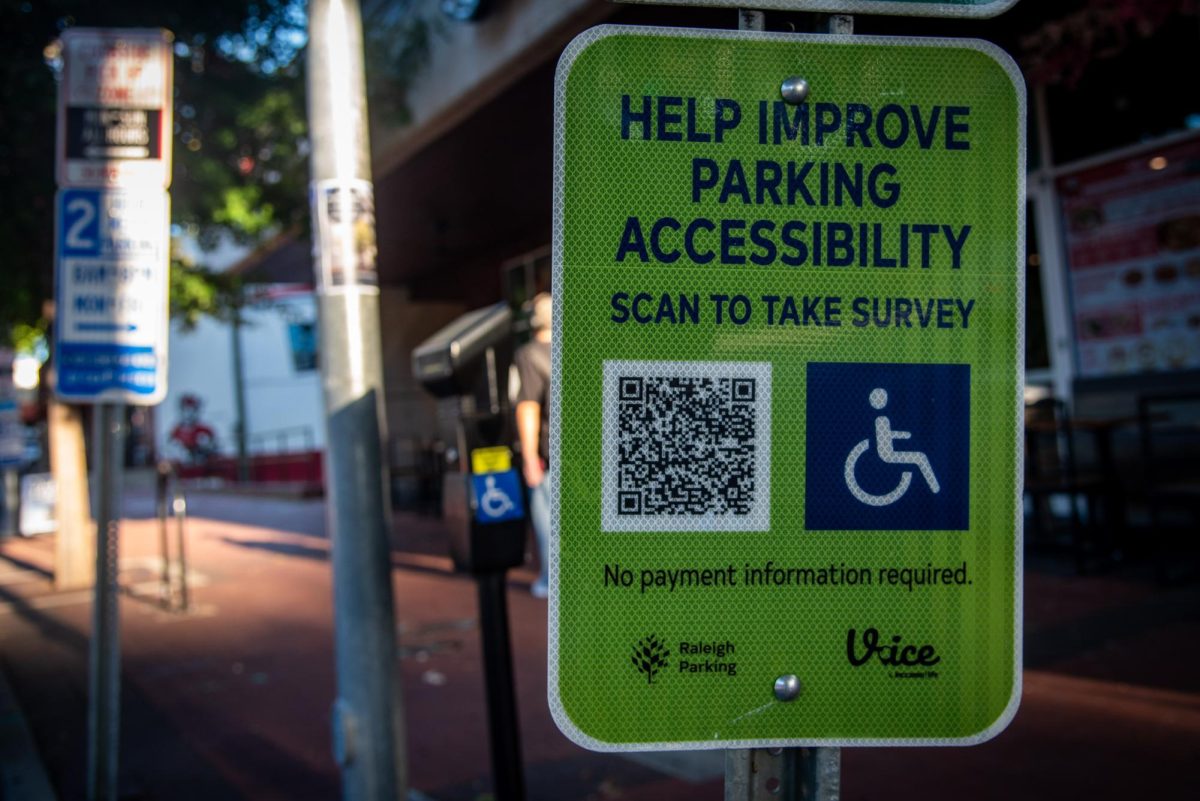With 5,904 new first-year students coming to campus, the class of 2029 is the largest incoming class of students NC State has seen. They are living away from home for the first time in a place that may be foreign to them.
This newfound environment may come with the fear of creating a new identity, separation from their support system and a feeling of homesickness for the first time. For most freshmen, their first year of college is the first time they are taking care of themselves, feeling true independence and experiencing freedom away from their parents or guardians.
Randolph Brooks, assistant director for outreach, said students can get homesick at any time, whether it’s right off the bat or a little further into the year.
“Some students, who in the beginning of the academic year, they are excited because they’re embarking on this new adventure, and they want to do it,” Brooks said. “And then they get home for a break, and now they’re home for four or five weeks, now, all of a sudden, [they] don’t know if [they] want to go back.”
Brooks said this homesickness is normal, can happen to students at any age and they shouldn’t be embarrassed or frustrated for feeling this way.
“Some people expect, well, I’m in my third year. I shouldn’t be feeling this way — it happens. You go into grad school and you may feel that a little bit,” Brooks said. “I don’t want people to feel like, ‘Oh, there must be something wrong,’ because there’s not anything wrong with you if you miss being home. That’s not a ‘Oh, my goodness, I’m going crazy,’ No, it’s a part of this transition.”
Brooks said it can be a challenge for students to leave lifelong friends they’ve had since kindergarten for a new place, and it can be a challenge to make friends in a new environment.
“It’s hard for some students to make friends,” Brooks said. “If there are some already preestablished friend groups, it’s hard for some students to get connected with people that way.”
Brooks said the key to navigating uncertainty among friendships is to put yourself out there – trying new things, saying yes to activities and focusing on the relationships that energize you.
“This is a process. I want students to know that you can take your time. You don’t want to bite off more than you can chew. You don’t want to set yourself up for failure, and you want to actually enjoy your time here,” Brooks said. “And so when you take your time in one space, you’re giving yourself a bit more room in these other spaces, whether it’s in your social life, maybe going to that football game or taking a chance and going to that club or that organization.”
Brooks said quality is more important than quantity when it comes to friendship. Putting energy into a few relationships that are meaningful and deep, rather than multiple surface-level ones and staying true to yourself, is what can help students succeed in their first year.
“You can find your core three to four [friends] and maybe expand from there, if you want to. That’s usually good enough,” Brooks said. “We don’t want people thinking that [you] have to be the life of the party when you’re not, and that’s not who you are. Nor do you want people to feel like [they] have to go to every single event when that’s not you.”
Sydni Woodward, a first-year studying business administration, said her biggest challenge coming to NC State this year was finding a routine that worked for her new schedule.
“Finding a new routine was difficult for me,” Woodward said. “That was definitely the scariest part because I had to create a new routine and leave what I’ve been used to.”
Brooks said students face many different struggles and stressors during their first year, and establishing a day-to-day routine can help manage this stress.
“You have a process that is well-established and understood, but when you come here, that process is not established and it’s not well understood,” Brooks said. “And many of these students are navigating that for the first time.”
When being dropped in a new place for the first time, there are many unexpected challenges that may appear. Woodward said planning her day for the little things and being mindful of her time is what helps her the most in this new environment.
“You have to not really plan, but kind of plan to go eat, because it takes a good five to 10 minutes to walk to go eat,” Woodward said. “It’s not like you could just walk in the kitchen and grab something to eat, or make something quick, you have to go and walk somewhere to eat, and then you have to plan, when I could do it in between classes.”
Caroline Underwood, a first-year studying agricultural science, said the question of how things could play out is what frightened her most about leaving for college this year.
“The uncertainty of how everything was going to go,” Underwood said. “There is nothing that could be exactly planned; friends, how your day is going to go, schedules, that type of thing.”
Prioritizing what is important in day-to-day life and ensuring that there is time for yourself among the work is an important tool for success. Woodward said getting her work done and working ahead helps her ensure she makes time for herself and the things that are important to her.
“My biggest thing to help with stress is trying not to procrastinate my homework, because I stress about it, and I hate having the syllabus where I see when everything’s due,” Woodward said. “I stress about it, but just getting it done, so that way I have time to do things that I want to do, rather than just stress about the things that I have to do.”
Brooks said taking moments to enjoy the time spent at school, enjoying the things you love and managing priorities can help students mitigate stress.
“The idea that academic stress is something that is new for our first-year students … they’re in the space where every decision that they make will impact the rest of their lives. That’s what they’re telling themselves,” Brooks said. “And there are some decisions that do, but then there are also many decisions that don’t.”
Underwood echoed Woodward and Brooks’ claims about scheduling to make time for the things they enjoy.
“Planning what to do when,” Underwood said. “Maybe not necessarily, study time or that type of thing, but just knowing when I have to do something and then planning my other things around that.”
Woodward said a positive mindset and good support system will help students go far. She practices this positive attitude every day to help remember that she is in control of her life.
“It’s definitely what you make of it. If you go in with a positive attitude and expecting the best, it will definitely be good,” Woodward said. “But if you dread it, or you dread leaving home, you’re gonna get stuck and not want to go out and do stuff.”
Brooks emphasized that students should take their time in their first year.
“Some students feel like ‘I have no time,’ because there are so many other things that are happening in life, and I want students to remember that you do have some time,” Brooks said. “You have some time to figure some of this stuff out. You don’t have to have all the answers today. You don’t have to have all the answers when you graduate … It’s not the end of your story.”





